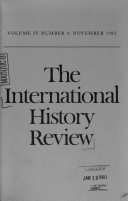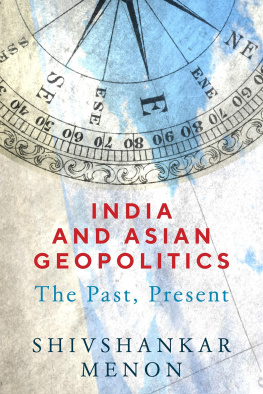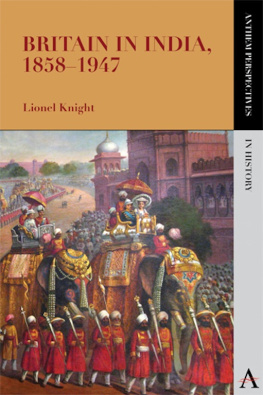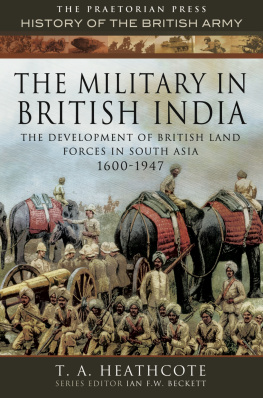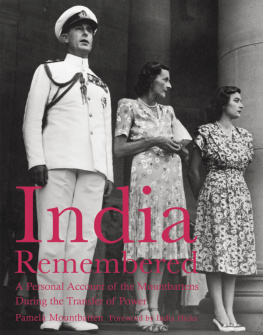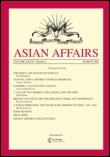The Journal of Imperial and Commonwealth History
Volume 38, Issue 3, 2010
A Serious Menace to Security: British Intelligence, V. K. Krishna Menon and the Indian High Commission in London, 194752
DOI: 10.1080/03086534.2010.503397
Paul M. McGarr *
pages 441-469
Available online: 09 Aug 2010
Abstract
Recently released Security Service (MI5) documents offer new insights into the Indian government's vulnerability to communist subversion after 1947, and the extent to which this threatened British national security. Existing historical works have noted MI5's concern over the links between Indian nationalists and the Communist Party of Great Britain (CPGB) during the inter-war period. Absent from the current historiography, however, is an account of the British government's response to V. K. Krishna Menon's appointment as India's High Commissioner to the United Kingdom in 1947. This article examines the nature of Menon's relationship with the CPGB, the risk that communists working for him within India's High Commission posed to British security, and the strategy that MI5 developed to meet it. Taken as a whole, as this article illustrates, the Attlee government's conviction that India, and more particularly, Krishna Menon, represented a weak link in the Commonwealth security chain, opens up new perspectives on Anglo-Indian relations post-1947.
Recently released Security Service (MI5) documents offer new insights into the Indian government's vulnerability to communist subversion after 1947 and the extent to which this threatened British national security. Existing historical works have noted MI5's concern over the links between Indian nationalists and the Communist Party of Great Britain (CPGB) during the inter-war period. Absent from the current historiography, however, is an account of the British government's response to V. K. Krishna Menon's appointment as India's high commissioner to the United Kingdom in 1947. This article examines the nature of Menon's relationship with the CPGB, the risk that communists working for him within India's High Commission posed to British security and the strategy that MI5 developed to meet it. Taken as a whole, as this article illustrates, the Attlee government's conviction that India, and more particularly Krishna Menon, represented a weak link in the Commonwealth security chain opens up new perspectives on Anglo-Indian relations post-1947.
British governments came under increasing domestic pressure during the 1930s to grant India greater political autonomy. Indian nationalist organisations in the United Kingdom, Labour politicians such as Stafford Cripps, Aneurin Bevan and Michael Foot and intellectuals including Bertrand Russell and Harold Laski all pressed the case for Indian self-government in some form. Menon's political activities were seen as a direct threat to Britain's position in South Asia.
In MI5's view, however, the threat that Krishna Menon posed to Britain's national security did not end once India had acquired dominion status in August 1947. Rather, it assumed a new and more serious dimension. With the onset of the Cold War, MI5 became increasingly concerned that the Indian government was vulnerable to communist subversion. In particular, given his connections to British communism, MI5 opposed New Delhi's decision to appoint Menon to the post of Indian high commissioner in London. As a consequence, between 1947 and 1952, the British government attempted to foster close Anglo-Indian relations, while at the same time containing the threat that India, and most especially Krishna Menon, posed to Commonwealth security.
Over the past decade a growing body of literature has begun to address the imperial dimension of Britain's intelligence history. More especially, path-breaking studies have shed light on the previously neglected part that British intelligence services played in the process of decolonisation. MI5's operational remit encompassed imperial counter-intelligence as well as domestic security. Accordingly, from the turn of the twentieth century, it worked closely with local security agencies across the British Empire to monitor and contain challenges to colonial authority presented by nationalist organisations and their leaders. Notably, in an African context, Richard Rathbone has provided compelling evidence of the influence wielded by Britain's security agencies in the run up to independence in the Gold Coast in 1957.
Equally, as Britain's imperial possessions marched inexorably towards independence during the latter half of the twentieth century, MI5 took on a new role. By forging liaison relationships with the security services of former British colonies
The political career of Krishna Menon has also received scholarly attention. Moreover, the Indian high commissioner's mercurial character and eccentric behaviour encouraged British and Indian officials alike to question his emotional stability, reinforcing the perception that Menon was unsound. Equally, as MI5 documents make clear, the Attlee government was conscious that, as an intimate of India's premier, Jawaharlal Nehru, Menon's position as high commissioner carried important implications not only for dominion security, but also for Anglo-Indian relations as a whole.
From a security standpoint, India's transition from British colony to Commonwealth partner takes on a different complexion from that presented by the current historiography. Significantly, MI5's files disclose the pivotal role it played in limiting the flow of dominion intelligence to India after 1947. MI5 records thus offer new insights into the history of British decolonisation in South Asia. This article, underpinned by recently declassified MI5 and IPI records, examines the character of Krishna Menon's association with British communism and MI5's involvement in investigating it. It goes on to discuss the British response to Menon's appointment as India's high commissioner to the United Kingdom and the subsequent concerns which arose over India House's susceptibility to communist subversion. As we shall see, the counter-subversion strategy adopted by the Attlee government encompassed plans to remove Krishna Menon from office. Thereafter, the impact of British attempts to neutralise the security threat posed by Menon will be analysed, before, finally, the impact of his tenure as Indian high commissioner is assessed in the context of wider Anglo-Indian relations. By addressing these various themes, this article seeks to add to our understanding of both the Anglo-Indian intelligence relationship, and Britain's broader post-colonial interaction with India. Post-war British governments cultivated strong ties with India, in part to mask an unwelcome attenuation of their global power. As the Cold War set in during 1947, however, Whitehall's security concerns denied India full membership of the Dominion club.
Krishna Menon first gained notoriety as an advocate of Indian home rule while studying under Harold Laski at the London School of Economics in the late 1920s.
On the Indian subcontinent, Menon's transformation of the India League was noted by the Indian National Congress (INC). Significantly, having first met Jawaharlal Nehru in London in 1935, Menon went on to develop an intimate rapport with the Indian nationalist leader. By 1938, Nehru had taken Menon under his political wing. Brushing aside complaints from Britain's Indian community over Menon's high-handed and authoritarian direction of the India League, in August that year Nehru made it clear that he:
would not consider any proposal that might tend to bring about a cleavage between either Congress or himself and the India League, and openly stated that he was satisfied with the work done by the League on behalf of the Indian National Congress in this country.

